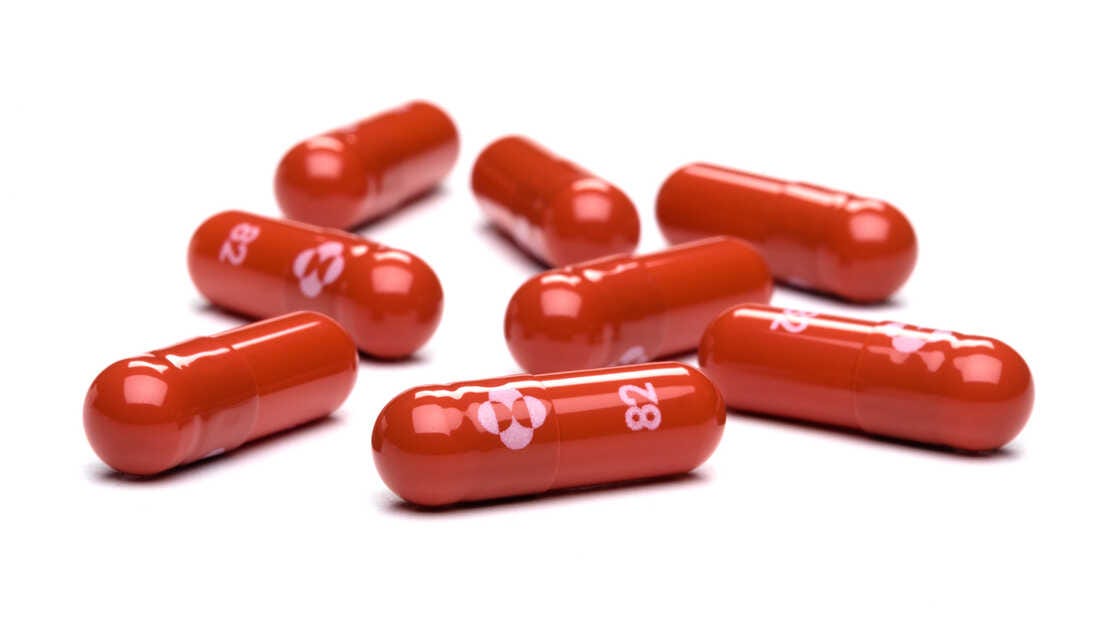Merck's new COVID pill scares me. And some Omicron immunity thoughts

Does the risk outweigh the benefits?
I ask myself a version of this question 50 times a day when it comes to patient care - it’s always a part of healthcare. And the public risk/benefit discussion throughout the time of COVID has been our the constant pandemic reminder that there’s no free lunch.
Most of the time, the discussion about the risks and benefits of a medical intervention is limited to the impact on the patient receiving it.
When I prescribe a blood pressure medication or an anticoagulant, I never have to talk with the patient about how this impacts anyone but themselves.
COVID has changed this in some ways - now we think about things like mask wearing, vaccine mandates, and flattening the curve. These things are our reminders that when it comes to an infectious disease, we’re in this together and what one person does impacts others.
But with COVID treatments thus far, the public part of a risk/benefit calculation hasn’t played as much of a role.
Sure, when you prescribe monoclonal antibodies, you may shorten the duration of illness and have a tiny impact on viral spread. But the population impact is completely trivial compared to the individual impact.
This is different when it comes to Merck’s new COVID drug, molnupiravir.
Molnupiravir is a game changer, and not in a good way
Molnupiravir works by inducing mutations in the SARS-CoV-2 virus. The premise of why this might work against COVID is because it will eventually lead to a version of the virus that can’t replicate anymore.
But wait, you must be asking: isn’t inducing mutations the way that a virus evolves? Isn’t the concern about Omicron that it’s accumulated a lot of mutations from prior strains and that’s how it may evade the immune system? Can molnupiravir potentially speed up evolution of SARS-CoV-2 and help new strains to develop?
YES!
The FDA briefing document on molnupiravir covers this concern. Treatment with molnupiravir causes considerably more changes to the viral genome than placebo (AKA natural infection) does.
We have precisely zero idea what the evolutionary impact on the virus will be.
Take a look at this from the FDA briefing packet (MOV = molnupiravir).
“In summary, concerns about the potential for MOV to enrich for low-level variants with spike protein amino acid changes within an individual treated patient may be low. However, it remains unclear if the potential for MOV-associated changes in the SARSCoV-2 spike protein presents a public health risk, considering anticipated widespread use of MOV.”
Approving this drug seems insane.
Even a drug company applying for approval of this drug seems insane.
I don’t care how big the chance is - if there is even the tiniest potential that this drug is going to lead to a COVID variant that escapes our immunity and/or becomes more virulent and/or spreads more easily, why would anyone think about taking that risk?
There is legitimate risk of molnupiravir leading to viral evolution and the potential to create strains that evade our immune response and vaccines.
I can’t imagine the hubris it must take to think that we can tame evolution.
And on top of that, the drug isn’t even that great.
It’s not worth this risk for a drug that isn’t a game changer
Look at the numbers submitted in the FDA briefing:
Those aren’t parachute-like numbers.
This drug isn’t so incredible that we can’t treat COVID patients without it. It has a mild impact on disease progression and we have a lot of other treatments that do the job without the risk of viral evolution.
Molnupiravir is the drug equivalent of viral gain-of-function research. The downside is gigantic and very clear - accelerating the evolution of a virus that we can’t stop. The upside is minimal - a small impact on disease progression.
For the life of me, I simply don’t understand why anyone would be thinking this is a reasonable risk worth taking.
Switching gears… about that 40-fold reduction in antibodies to Omicron
I don’t know if you saw anything about the 40-fold drop in the ability of antibodies to neutralize Omicron, but I wanted to just conclude this newsletter by commenting on what this actually means in terms of vaccine effectiveness:

Immunity is complicated. It’s too early to draw conclusions and you certainly can’t draw conclusions about a phenomenon as complex as immunity across a population from some antibody neutralization data.
The biggest risk here doesn’t appear to be people who are vaccinated and boosted. Just like everything with COVID, the risk is really concentrated in populations that we already knew were vulnerable, like those in nursing homes:


I think it’s still reasonable to have some optimism that Omicron is going to end up lame-icron. But the jury is still out on the full scope of what it means.
Thank you for reading! Please share with friends and family and encourage them to subscribe!




